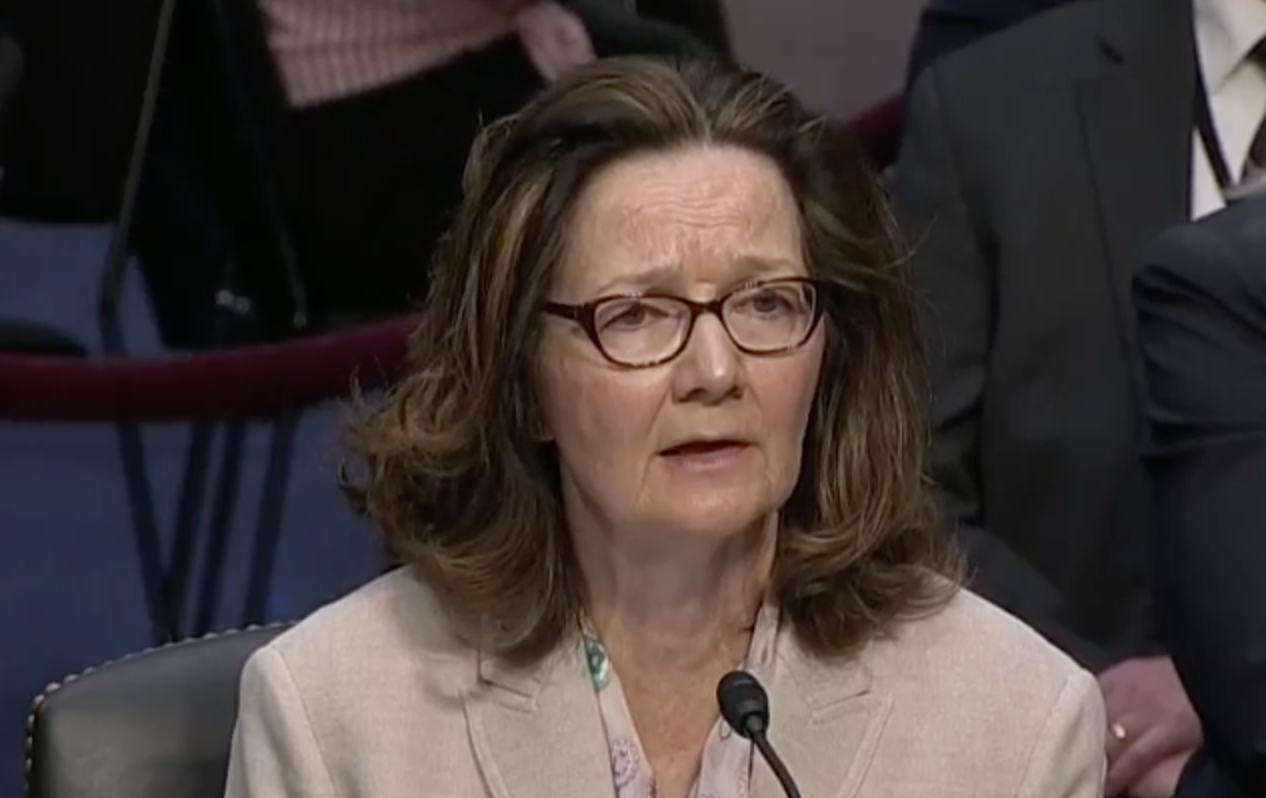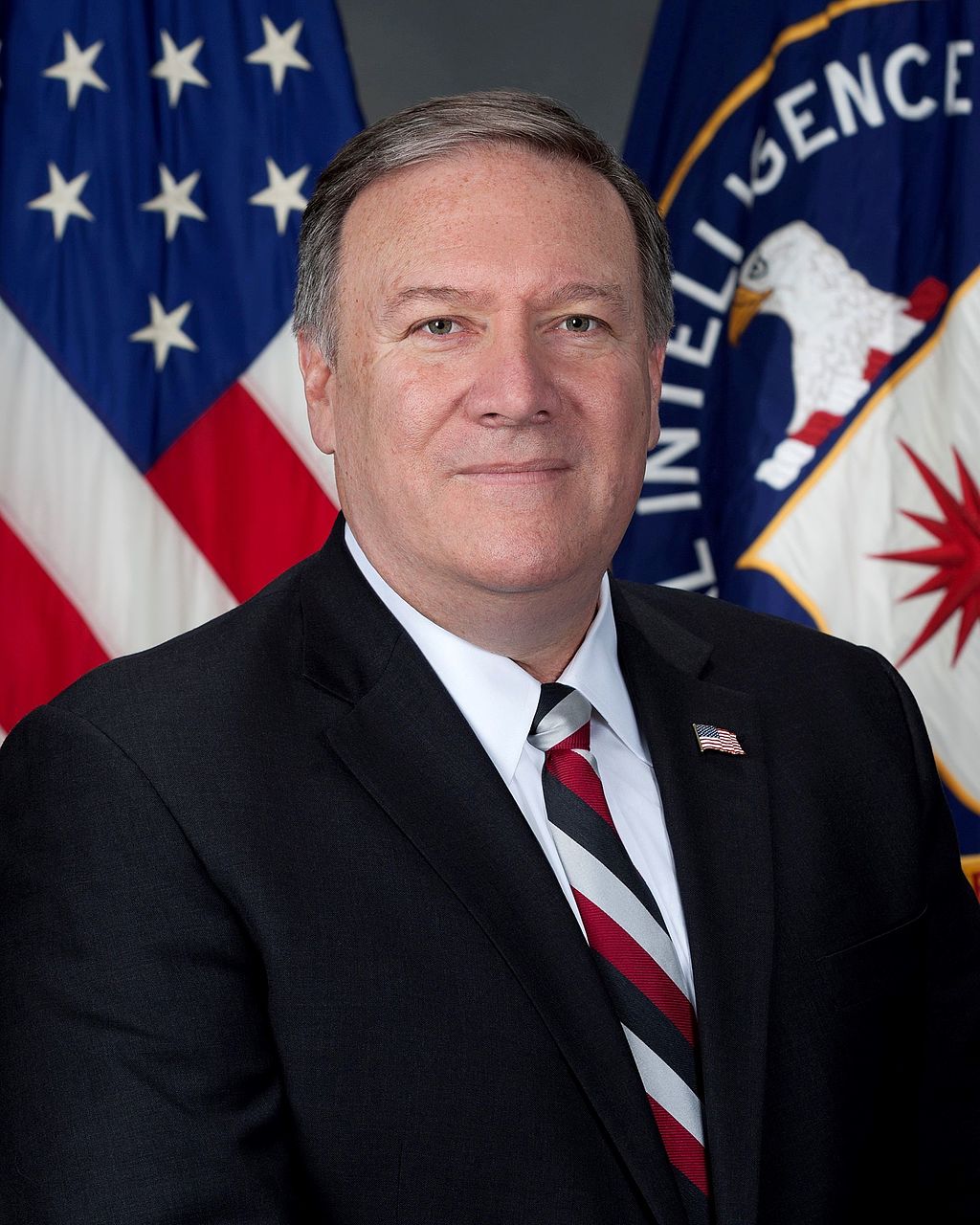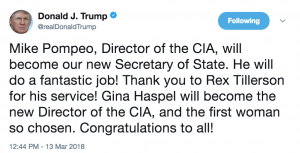Gina Haspel’s Fluid Moral Compass
I expected to dislike Gina Haspel, but be impressed with her competence (the same view I always had about John Brennan). But she did not come off as competent in her confirmation hearing, in large part because the lies surrounding her career cannot be sustained.
Let’s start with the questions she didn’t answer (usually offering a non-responsive rehearsed answer instead). She refused to say:
- Whether she believes, with the benefit of hindsight, torture was immoral.
- If a terrorist tortured a CIA officer, whether that would be immoral.
- Whether the torture program was consistent with American values.
- Whether she oversaw the torture of Abd al Rahim al-Nashiri.
- Whether she was in a role supervising torture before she became Jose Rodriguez’ Chief of Staff.
- Whether she pushed to keep the torture program between 2005 and 2007 (see that question here).
- Whether she would recuse from declassification decisions relating to her nomination.
- Whether Dan Coats should oversee declassification decisions regarding her nomination.
- Whether she has been alone with President Trump.
- Whether she would tell Congress if he asked her for a loyalty oath.
She also answered that she didn’t think torture worked, but then hedged and said she couldn’t say that because we got evidence from it.
She did answer one question that went to the core of her abuse when she participated in the destruction of the torture tapes. She said she would consider it insubordination today if an officer bypassed her for something as substantive as destroying the tapes, as Jose Rodriguez did. But she as much as said she would have destroyed the tape much earlier, because of the security risk they posed to the officers who appeared in the videos.
Then there was the logical inconsistency of her presentation. Several Senators, including Mark Warner, Dianne Feinstein, Ron Wyden, and Kamala Harris, complained about the selective declassification of information surrounding her confirmation. Haspel explained that she had to abide by the rules of classification just like everyone else. Not only was that transparent bullshit on its face (as Harris noted, the CIA released a great deal of information that revealed details of her operations), during the course of the hearing she provided details about her first meeting with an asset, Jennifer Matthews’ life and assignments, and a counter-drug program that also must be classified, and yet she was willing to simply blurt them out.
Perhaps most remarkable, though, is a key claim she made to excuse the destruction of the torture tape.
She claimed she did not recall which of the long list of entities that opposed the destruction of the torture tape she knew about at the time. That includes a move by Carl Levin to form a congressional commission to investigate torture. But on several occasions, she said that because the torture was covered in cable traffic, no other evidence needed to be kept.
That assumes, of course, that both the specific CIA cable and CIA cables generally are a fair rendition of any event CIA does (it’s not; in this case, and some videos were destroyed before the reviews finding them to match).
But when the Senate Intelligence Committee did a 6.700 page report based on the cables CIA used to describe their own torture, CIA wailed because SSCI didn’t interview the individual officers. Haspel effectively suggested that cables, in the absence of the torture tapes, would be sufficient for a congressional commission. Yet when Congress used cables to do an investigation of torture, CIA then claimed that was invalid.
When asked whether torture was moral, Haspel instead repeatedly insisted she has a sound moral compass. Except what her testimony made clear is that her idea of moral compass has everything to do with what is good for the CIA and its officers. It has absolutely nothing to do with traditional moral values. That’s not actually surprising. That’s what we ask of clandestine CIA officers: to break the rules normal people adhere to, in the name of serving our country, and to remain absolutely loyal to those whose lives are exposed in doing so.
Except today, Haspel proved unable to move beyond the fluid moral compass of a CIA officer to adopt a more stringent moral code of an official serving a democracy.





